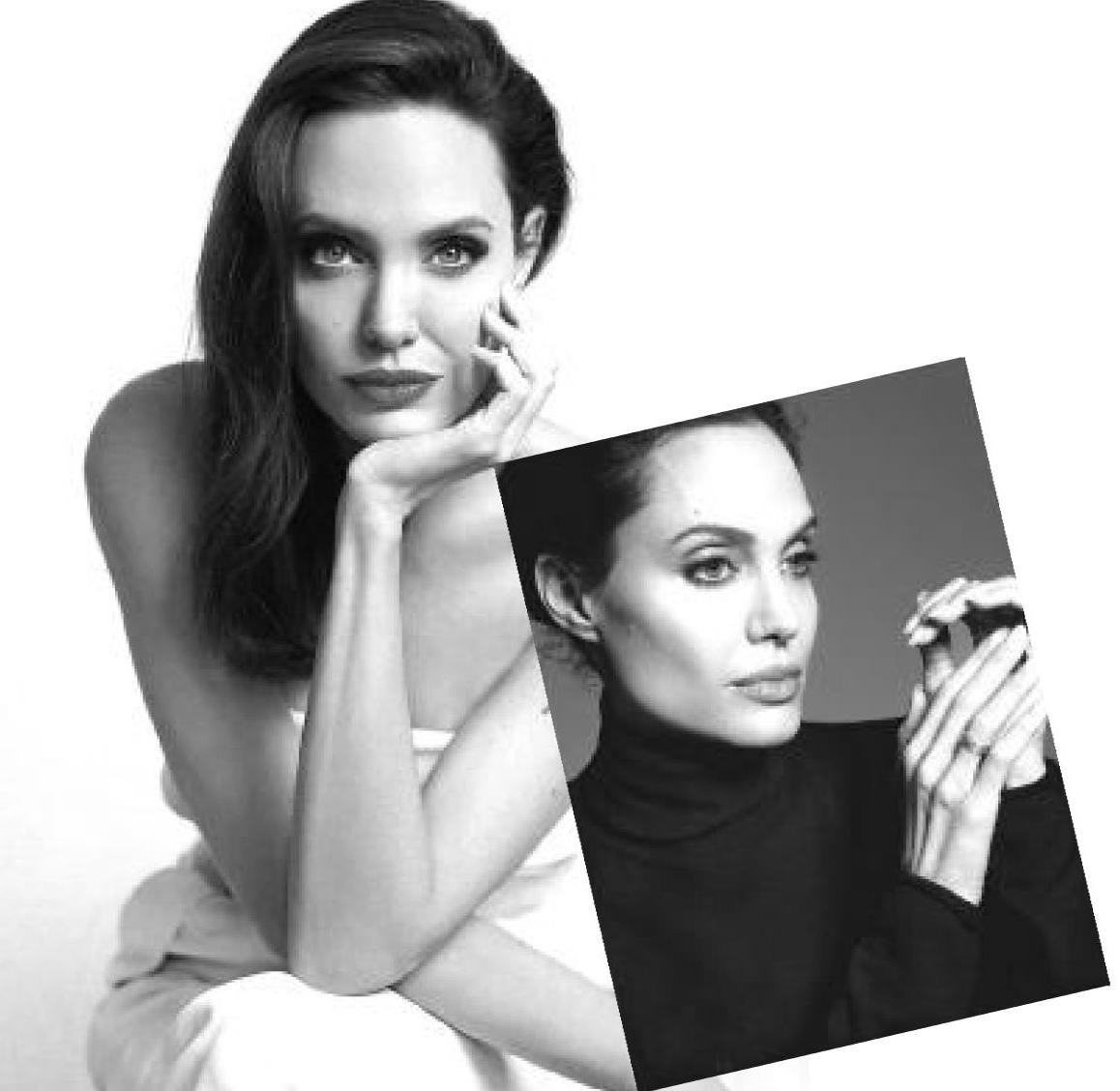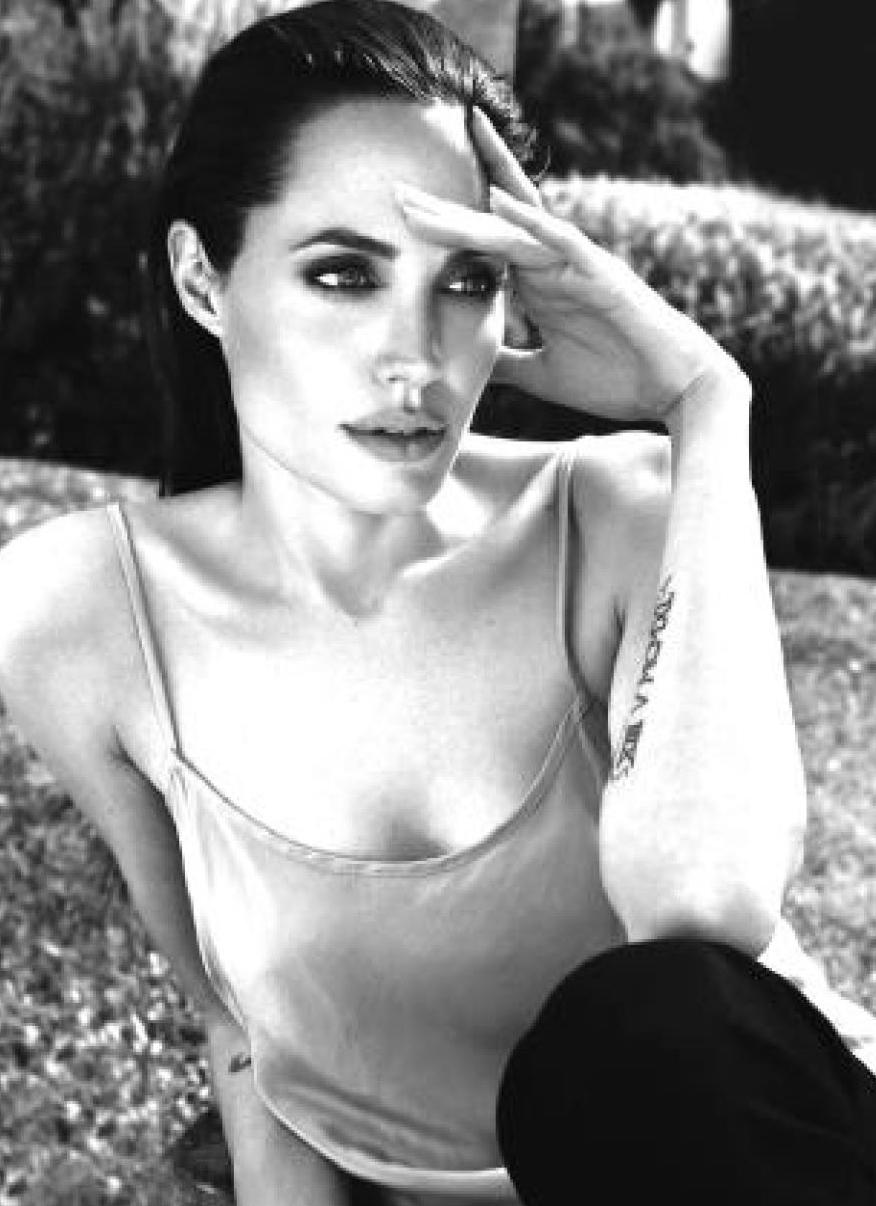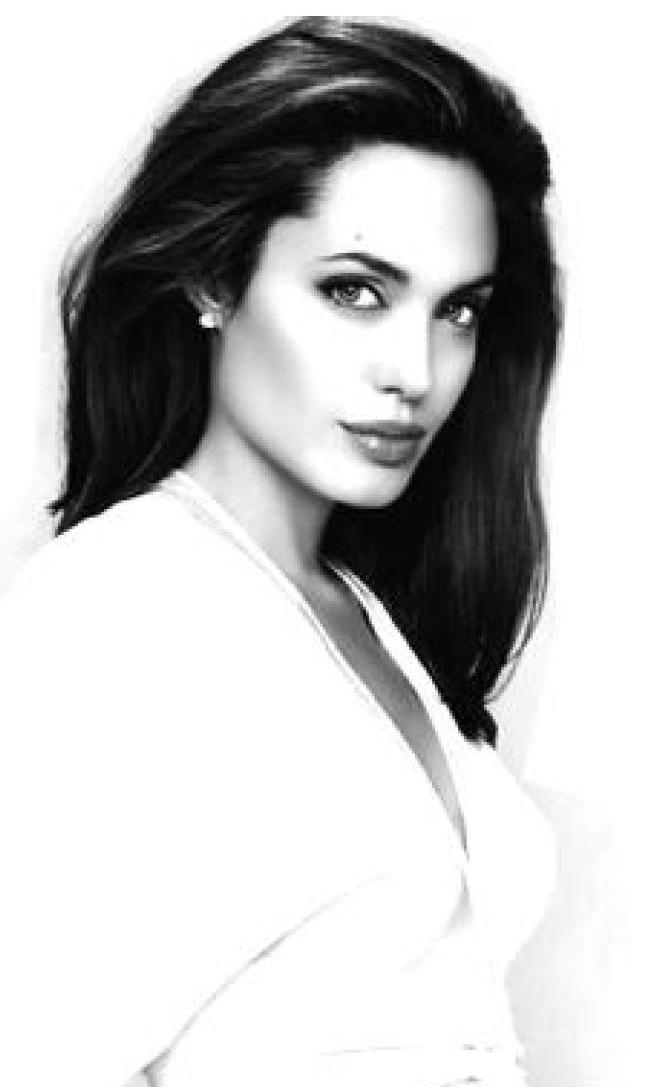我的身体我做主
2020-03-02



A ngelina Jolie, in publicly airing the details of a surgery that forced her into early menopause, is taking an activist approach to oversharing.
Lets talk about menopause. Or lets talk, at least, about Angelina Jolie. The actress, filmmaker, and advocate recently underwent surgery that removed her ovaries and fallopian tubes—and that, as a result, put her into forced menopause at the age of 39. Jolie wrote about the surgery, and its effects, in Tuesdays New York Times. “I will not be able to have any more children,” she writes, “and I expect some physical changes. But I feel at ease with whatever will come, not because I am strong but because this is a part of life. It is nothing to be feared.”
That Jolie would undergo the surgery she did, given her genetic risk for ovarian and breast cancers—she lost her mother, her grandmother, and her aunt to the disease—is not in itself terribly noteworthy; it was a decision she made, she writes, after long consideration, and with input from medical professionals both “Eastern and Western.” What is noteworthy, though, is the fact that Jolie detailed the decision in the pages of the New York Times. Even in the age of U.S. Weekly and TMZ, celebrities personal health is still generally regarded as, you know, personal. And reproductive health even more so. What Jolie is making, by being public about her surgery, is a subtly political point: Shes breaking the barrier between reproductive health and health in general.
Shes also breaking a cultural barrier, though. In her essays—the one published today is the sequel to a piece Jolie wrote in 2013, detailing her decision to get a double mastectomy—Jolie has emphasized the fact that she still feels, despite and even because of the surgeries, fully feminine. “I do not feel any less of a woman,” she wrote in 2013. “I feel empowered that I made a strong choice that in no way diminishes my femininity.” Todays essay echoes that sentiment: “I feel feminine,” she notes, “and grounded in the choices I am making for myself and my family.”
This is significant, and not just because Jolies openness is bringing normally taboo subjects into the public sphere. Theres also the fact that Hollywood has, particularly in its notoriously troublesome dealings with women, emphasized a divide between beauty and health. Or, more specifically, between health and “health.” The media-industrial complex, with its emphasis on images and consumerism, has treated beauty not just as evidence of well-being, but also as something that can be obtained at the expense of it. It has sold us, and particularly women, on beautifying solutions like Botox, tanning, and plastic surgery, with all its attendant dangers. It has emphasized, in other words, beauty—which doubles, often, as youth—over longevity.
The toxicity of all that, literally and otherwise, is obvious. The good news, though, is that as humans, were rapidly evolving away from it. Its not that were becoming less superficial, or less interested in beauty and youth and the extension of both; its instead that the media is beginning to understand beauty as a holistic proposition—something that is intimately connected to health. Sure, women can still buy their way to better looks, occasionally at the cost of their own longevity and quality of life. But whats becoming apparent now as never before is that the best way to look healthy is to actually be that way. All those Cosmo articles detailing the best diets for glossy hair and glowing skin; all those Marie Claire pieces sharing destressing tips. The rise of yoga and meditation and “clean eating” and detoxing and quinoa. The popularity of organic foods. The fact that “green juice” is a thing.
Its easy to make fun of this stuff, and of all the other things that tend to result when Peter Pan complexes meet conspicuous consumption. What they suggest, though, is an extremely salutary thing: that beauty, in the end, is another thing thats best when its organic.
Which is another way of saying that hotness is increasingly a holistic proposition. As is celebrity. U.S. Weekly and People magazine and TMZ have made a sport, if not an art, of emphasizing the human banalities of stars lives(“Celebrities: theyre just like us!”). Social media have given celebrities even more platforms for sharing their relatable humanity. So have more traditional forms of commercial media. Beyonce has, on top of everything else, a line of yogawear and a vegan food delivery service. Gwyneth Paltrow is selling a life philosophy, along with recipes for gluten-free lemon bars, on GOOP. So is Blake Lively, on Preserve. Even Kim Kardashian, who might yet prove to be a mannequin come to life, is selling humanity—her lifestyle, her catchphrases, her particular approaches to celebrity and beauty and capitalism—along with her image.
In that context, Jolies discussion of her decision to remove her reproductive organs is not terribly surprising. Celebrities have long used their fame for political advocacy, and Jolie herself has been, on top of everything else, a human rights advocate. (Her bio on her New York Times essay lists her as“a filmmaker and special envoy of the United Nations High Commissioner for Refugees.”) The fact that Jolie is training her focus on her own health puts her in league with a long list of fellow stars who use their fame, and their personal experiences, to bring attention to health issues: Michael J. Fox and Parkinsons. Katie Couric and colon cancer. Magic Johnson and HIV. Padma Lakshmi and endometriosis. Brooke Shields and postpartum depression. Maria Shriver and Alzheimers. Etc.
Jolies advocacy is especially powerful, though, because the issues shes discussing—and the issues she is, more importantly, encouraging a discussion about—are intimately connected to cultural assumptions about youth and desirability. Jolie is oversharing, in a way, but its a productive form of oversharing—far removed from the vapidities of the Kardashian selfie or the self-indulgences of Celebrity Instagram. Jolie, in talking about her surgery, is also emphasizing the inextricable connection between inner health and outer beauty. “I feel feminine,” Jolie writes in todays essay. That declaration is preceded, tellingly, by this one: “I will look for natural ways to strengthen my immune system.”
安吉麗娜·朱丽公开了自己手术的细节,这个手术让她提前进入了更年期,她以一位活动家的身份来大量公开这些细节。
我们来聊聊更年期。或者至少聊聊安吉丽娜·朱丽。这位女演员、导演、倡导者最近做了切除子宫和输卵管的手术,这让她39岁就进入了人为性更年期。朱丽在周二的《纽约时报》上就这个手术及其结果写了一篇文章。“我将不能再生小孩,”她这样写道,“我会面临一些身体上的变化。但我对将要发生的事情感到坦然,不是因为我很坚强,而是因为这就是生活的一部分。没什么要恐惧的。”
朱丽做手术这件事情本身无甚值得大惊小怪的,毕竟她有患卵巢癌和乳腺癌的遗传风险,她的母亲、外祖母和阿姨都因此病去世;她这样写道,那是她自己做的决定,经长期考虑,并咨询了“东西方”的专业医生。而值得关注的是朱丽在《纽约时报》上详述这个决定这件事。即使是在《美国周报》和《TMZ》时代,名人的个人健康仍然被看作,呃,隐私。而生殖健康就更是如此了。通过公开这次手术,朱丽在表达一个温和的政治观点:她要打破生殖健康和健康之间的界限。
她也在打破一个文化藩篱。在她今天发表的文章中,朱丽强调虽然进行了手术,甚至是因为这个手术,她仍感觉自己是一个真正的女性。这是她2013年所写文章的续篇,那篇文章详述了她做双侧乳房切除术的决定。“我一点都不觉得自己少了女人味,”她在2013年写道。“我感觉充满了力量,我做了一个重大的选择,这绝对不会让我失去女性特质。”今天的文章回应了这句话:“我感觉我是女性,”她说,“我为自己和家人做的这个抉择让我感到踏实。”
这是意义非凡的,不仅仅因为朱丽的坦诚向公众带出了常被视为禁忌的话题。好莱坞向来强调美与健康分离,从其对女性形象一贯具争议性的表现上更可见一斑。更明确地说,是健康与所谓“健康”的分离。媒体行业一直重视形象和提倡消费主义,在该行业看来,美不仅仅是健康愉悦的体现,还是可以通过牺牲健康来获得的东西。它向我们,尤其是女性,售卖美容产品,如,肉毒杆素、日光浴美黑和整形,全都伴有风险。换言之,它强调的是美丽——通常还包括年轻——比健康重要。
不管是字面意义还是以其他形式表现,以上信息的有害性显而易见。好消息是,作为人类,我们正快速地进步。但这并不意味着我们从此不再肤浅,或不再关注美貌、青春及与之相关的东西;而是媒体开始明白美是一个整体——与健康紧密相连。当然,女性仍然可以花钱让自己更好看,有时以健康和生活质量为代价。现在比以往更清晰的是想要拥有健康气息,那么最好的方法就是拥有健康的生活方式。《Cosmo》杂志上关于如何饮食让头发有光泽、皮肤光滑的文章;《嘉人》杂志分享的减压小提示;瑜伽、冥想、“洁食”、排毒、藜麦的兴起;大受欢迎的有机食物;原来真有“青汁”这东西。
取笑以上东西很容易,当彼得潘情结遇上炫耀性消费时,这是通常会发生的。但他们的建议是非常有益的:最终,美变得不一样了,天然的就是最好的。
对明星而言,那也说明了受欢迎越来越成为一个整体。《美国周刊》、《人民》杂志和《TMZ》都着重关注明星生活中的平凡琐碎(“名人:他们跟我们是一样的!”)。社交媒体给了明星更多平台来分享人类共性。更多传统的商业媒体也是如此。撇开别的不说,碧昂丝有一系列的瑜伽服装,和享有素食供应服务。格温妮斯·帕特洛正在GOOP网站上推广一套生活理念,同时搭卖无麸质柠檬方块饼的配方。布蕾克·莱弗利在Preserve网站上也在这样做。甚至连金·卡戴珊——曾宣称自己是真人版人体模特,也在兜售人性——她的生活方式,引人注目的话语,她当明星、美容、理财的特殊方式——附带她的照片。
在这样的背景下,朱丽对于自己切除生殖器官的讨论并不是特别惊人。早有名人利用自己的名声进行政治倡导,而朱丽(除却其他身份)本身就是一位人权倡导者。(《纽约时报》在她发表的文章中对她的介绍是“电影导演以及联合国难民事务高级专员办事处特使。”)朱丽关注自身健康这件事让她与其他利用自己名声和个人经历来让人关注健康问题的明星站在同一阵线:迈克尔·J·福克斯与帕金森症,凯蒂·库里克与结肠癌,魔术师约翰逊与艾滋病,帕德玛·拉克希米与子宫内膜异位,布鲁克·希尔兹与产后抑郁症,玛丽亚·史莱佛与阿尔茨海默症等。
然而,朱丽的倡导尤其有力,因为她在讨论的问题——更重要的是,她鼓励大众讨论的问题——与关于青春和欲望的文化成见密切相关。从某方面来说,朱丽分享过度了,但她的过度分享却是成效显著的——远不是卡戴珊自拍照的无聊,也不是“明星图片分享”的那种自恋。朱丽在谈到她的手术时,也强调了内在美和外在美是密不可分的。“我觉得自己是女性,”朱丽在文章中写道。这份声明是先进、有力的:“我会寻求自然的方式来增强我的免疫系统。”
